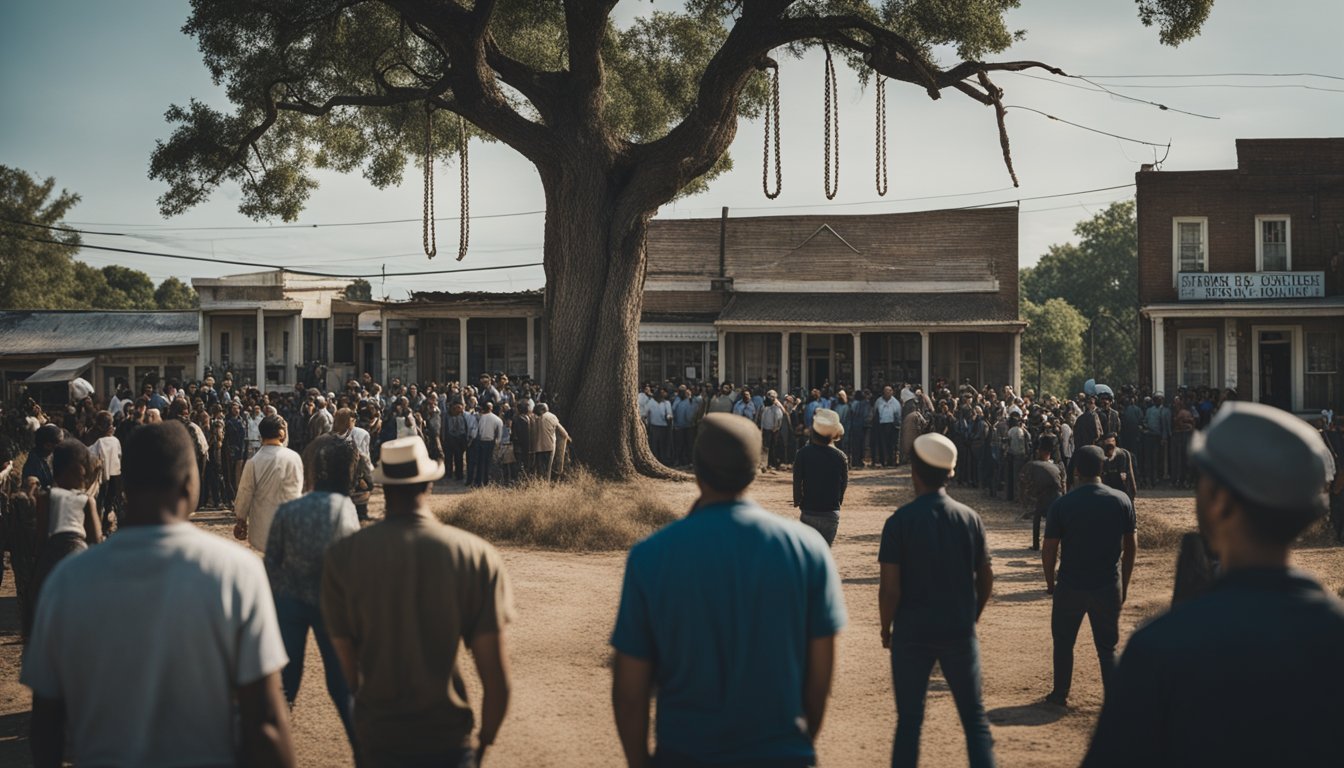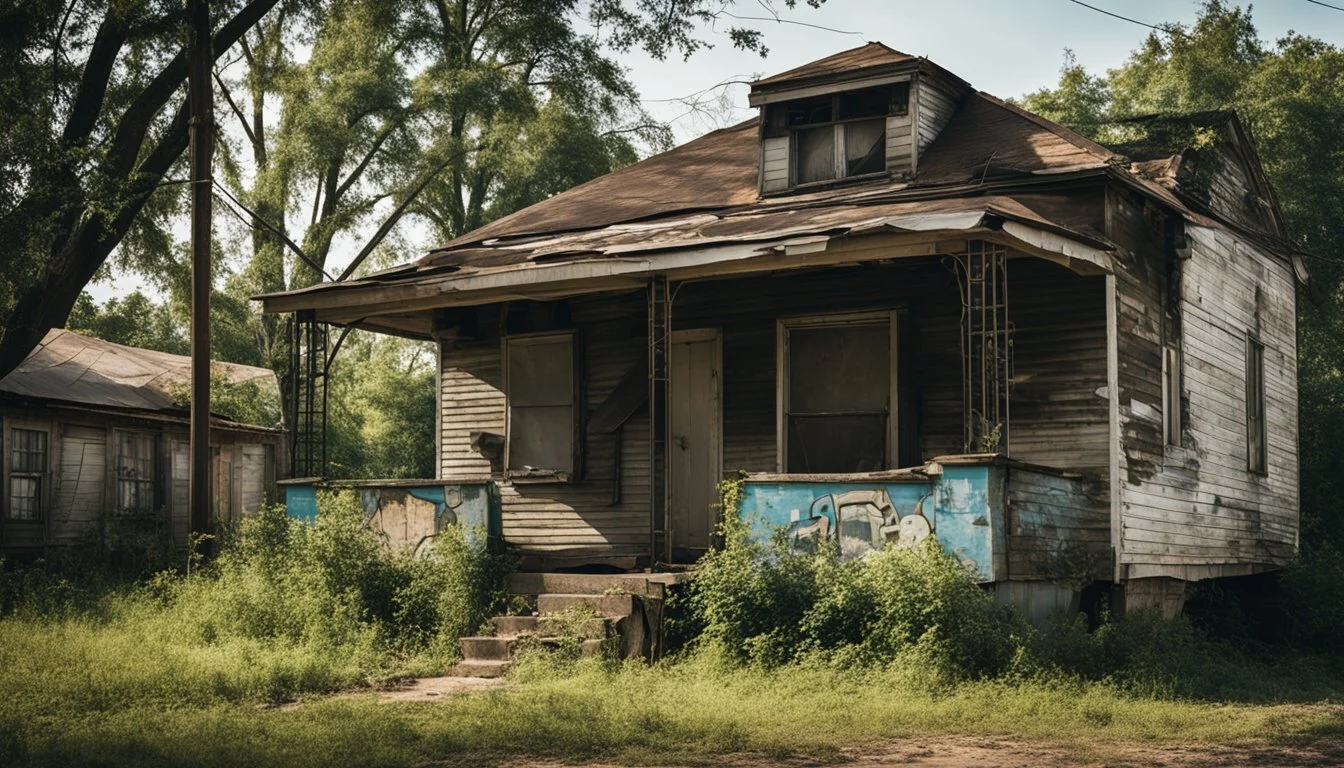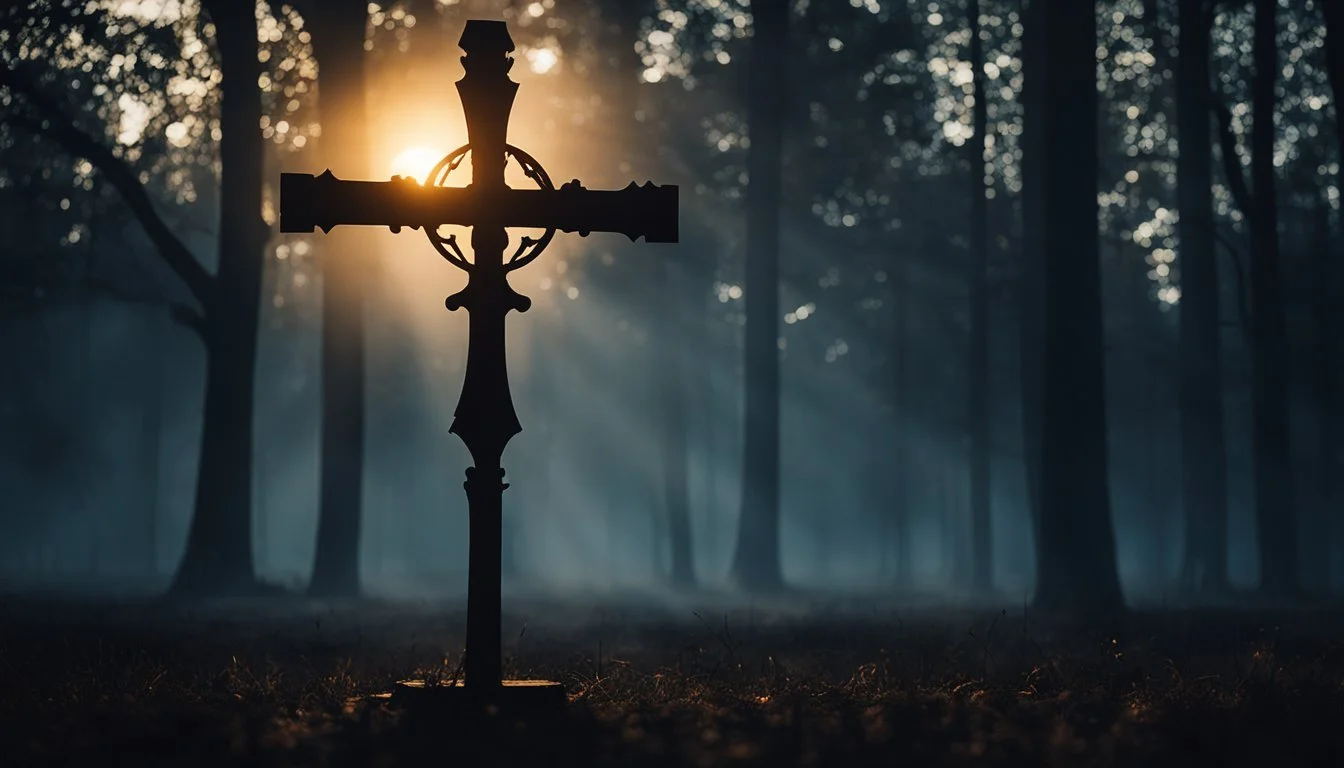10 True Crime Documentaries About Hate Crimes in Alabama
Riveting Stories You Must Watch
Alabama has a deep and complex history of racial tension and violence, making it a significant location for examining hate crimes. True crime documentaries focusing on these incidents reveal the persistent struggles for justice and equality in the state. Viewers will gain insights into the social and legal challenges faced by victims and their communities.
These films offer a detailed look at some of the most shocking and unresolved hate crimes, providing a somber reflection on both historical and contemporary issues. By exploring these narratives, the documentaries contribute to a greater awareness and understanding of the impact of hate crimes in Alabama.
1) 'Alabama Hate: The Murder of Michael Donald' (2006)
'Alabama Hate: The Murder of Michael Donald' is a compelling documentary that examines the tragic death of Michael Donald in Mobile, Alabama, in 1981.
Michael Donald, a 19-year-old African-American, was brutally murdered by members of the Ku Klux Klan.
The documentary provides a detailed account of the events leading up to the crime, capturing the pervasive racial tension of the time.
The film delves into the investigation that followed and the subsequent legal battles. It highlights the tenacity of Donald's mother, Beulah Mae Donald, who pursued justice for her son.
Her legal efforts, alongside attorney Morris Dees, eventually led to a landmark civil case that bankrupted the Klan.
The film also touches on the grim reality that Michael Donald’s lynching is considered one of the last recorded lynchings in the United States.
Through interviews and archival footage, viewers gain insight into the historical and social implications of the case.
This documentary serves as both a tribute to Michael Donald and a stark reminder of the enduring fight against racial hatred.
For more information, visit the IMDB page.
2) 'State Convictions: The Larry Flynt Case' (2007)
'State Convictions: The Larry Flynt Case' is a gripping documentary examining the hate crime against Larry Flynt in Alabama.
Larry Flynt, a prominent publisher and free-speech activist, was targeted due to his controversial publications. This film dives deep into the circumstances leading to the attack.
The documentary sheds light on the subsequent legal battles and implications for free speech in America. It provides a detailed account of the investigations and the societal tensions that fueled the crime.
This documentary is a must-watch for those interested in the intersection of law, free speech, and hate crimes in the Southern United States.
For more information, visit IMDB.
3) 'The Nuremberg Legacy: Justice in the Jim Crow South' (2020)
The documentary "The Nuremberg Legacy: Justice in the Jim Crow South" examines how the principles of justice from the Nuremberg Trials influenced civil rights cases in Alabama during the Jim Crow era.
The film highlights pivotal court cases where the Nuremberg principles were invoked. These cases challenged the systemic racism prevalent in the legal system of the South.
It features interviews with historians and legal experts who draw direct lines between international law developments and domestic civil rights struggles.
By comparing the international fight against Nazi crimes to the domestic fight against racial injustice in the South, the documentary brings a unique perspective on justice.
Through archival footage and personal testimonies, the film provides a compelling narrative on how global justice principles were applied locally. This approach amplifies the broader impact of the Nuremberg Trials on civil rights.
4) 'Pain and Justice: The Lynching of Curtis Flowers' (2024)
'Pain and Justice: The Lynching of Curtis Flowers' explores the harrowing story of Curtis Flowers, a Black man in Mississippi who faced extreme judicial misconduct and racism.
The documentary delves into how Flowers was tried six times for the same crime, suffering from systemic bias. All six trials were prosecuted by District Attorney Doug Evans, whose relentless pursuit showcased blatant racial prejudice.
Throughout the film, interviews with legal experts, activists, and Flowers himself paint a picture of a deeply flawed justice system. The relentless efforts to convict Flowers despite substantial evidence of his innocence reveal a legal system fraught with racial inequities.
This documentary not only highlights Flowers' personal ordeal but also examines broader issues of racial injustice in the U.S. criminal justice system.
For further information, visit IMDb.
5) 'Injustice in Bessemer: The Alvin MacCarty Story' (2023)
This documentary sheds light on the disturbing case of Alvin MacCarty, a young African American man wrongfully accused of arson in Bessemer, Alabama.
It explores the intricacies of the case, highlighting systemic failures and racial bias within the local judicial system.
Through interviews with family members, legal experts, and community activists, the film provides a comprehensive view of the impact on Alvin and his community.
'Injustice in Bessemer: The Alvin MacCarty Story' also features rare footage and court documents, offering viewers an in-depth look into the legal battles faced by Alvin MacCarty.
The documentary emphasizes the broader issues of racial injustice and the need for reform in Alabama's legal practices.
For more information on this film, visit IMDB.
6) 'Unforgotten: The Bombing of the 16th Street Baptist Church' (1997)
"Unforgotten: The Bombing of the 16th Street Baptist Church" focuses on the tragic events of September 15, 1963, in Birmingham, Alabama. On that day, a bomb exploded at the 16th Street Baptist Church, killing four young African American girls and injuring 22 others.
In this documentary, viewers learn about the details of the bombing, including the fact that 19 sticks of dynamite were used. The bomb was planted by members of the Ku Klux Klan, a white supremacist group.
Family members, community leaders, and historians provide perspectives on the impact of the bombing. The film delves into the broader context of the Civil Rights Movement and the climate of racial tension in Birmingham at the time.
"Unforgotten" also explores the legal aftermath. While some perpetrators were convicted years later, justice was long delayed. The documentary highlights both the resilience of the victims' families and the ongoing struggle for civil rights.
For more information, visit the IMDB page.
7) 'Hatred in the Heart: The Killing of Billy Ray Johnson' (2024)
"Hatred in the Heart: The Killing of Billy Ray Johnson" examines the brutal assault on Billy Ray Johnson, a mentally disabled Black man from Linden, Texas. He was lured to a party by younger, white individuals who later left him unconscious on a desolate country road.
The film delves into the legal battle that ensued, showcasing the actions of a Texas lawyer and his psychologist wife. They played crucial roles in securing justice for Johnson. The documentary highlights the systemic racism and neglect that allowed such a hate crime to occur.
Billy Ray Johnson’s story is a heartbreaking example of racial violence and injustice. Found unconscious on a fire ant mound, he now resides in a nursing home, his life irrevocably changed. The film serves as a sobering reminder of the need to address hate crimes and support the victims.
For more information, click here.
8) 'Deadly Prejudice: The Joe Nathan James Jr. Case' (2023)
'Deadly Prejudice: The Joe Nathan James Jr. Case' delves into the harrowing story of Joe Nathan James Jr., convicted for the 1994 murder of Faith Hall, his ex-girlfriend. The documentary explores the events leading to the crime, the subsequent trial, and the societal and racial prejudices that influenced the case.
James Jr. was sentenced to death by lethal injection, and his execution on July 28, 2022, generated significant controversy. The documentary highlights pleas from Hall's family, who requested clemency, advocating against the death penalty.
The film addresses allegations of improper legal processes and explores the emotional turmoil experienced by both families. Renewed discussions on the death penalty and systemic issues within the justice system are central themes.
By providing interviews with legal experts, family members, and journalists, the documentary brings multiple perspectives to the forefront. It aims to foster a deeper understanding of the broader implications of hate crimes and capital punishment.
For more information, visit Deadly Prejudice: The Joe Nathan James Jr. Case (2023) on IMDb.
9) 'Burning Crosses: The Morrow Family Incident' (2022)
In 2022, the documentary 'Burning Crosses: The Morrow Family Incident' brought to light a chilling hate crime that took place in rural Alabama. The film details the harrowing experience of the Morrow family, who became targets of a racially motivated attack when a group of white supremacists burned crosses on their lawn.
This documentary provides a stark look into the terror and trauma experienced by the Morrow family. Interviews with family members and local authorities paint a vivid picture of the night of the incident and its aftermath.
Through a meticulous investigation, the film uncovers the shocking details of how the perpetrators were brought to justice. It addresses the broader context of racial tensions in Alabama and explores the lingering impact of hate crimes on communities.
For more information, visit IMDB.
10) 'Closed Cases: The Tragic Fate of Brandon McClelland' (2022)
"Closed Cases: The Tragic Fate of Brandon McClelland" explores a harrowing incident from 2008, where the body of Brandon McClelland was found on a rural road in Paris, Texas, close to the Alabama border. This documentary delves deep into the investigation and subsequent court cases surrounding his death.
Brandon McClelland, a young African American man, was allegedly killed in a racially motivated crime. The documentary pieces together eyewitness accounts, police reports, and forensic evidence to shed light on the disturbing events leading up to his death. It questions the effectiveness of law enforcement and the judicial system in handling hate crimes.
The case drew national attention, highlighting racial tensions and the pursuit of justice in rural communities. Interviews with McClelland's family and community members provide personal insights into the emotional and societal impact of the crime.
"Closed Cases: The Tragic Fate of Brandon McClelland" (2022) leaves viewers to ponder the significance of justice and accountability in cases of racial violence. For further information on the documentary, visit IMDB.
History of Hate Crimes in Alabama
Hate crimes in Alabama have a long and troubling history, with significant events dating back to the Civil Rights Movement and continuing into the modern era. This section explores key incidents and patterns in both periods.
Civil Rights Movement Era
The Civil Rights Movement in the 1950s and 1960s saw a wave of racially motivated violence in Alabama. One of the most infamous incidents was the 1963 bombing of the 16th Street Baptist Church in Birmingham. This heinous act killed four African American girls and spurred national outrage.
In 1965, the Selma to Montgomery marchers faced brutal attacks from law enforcement during what became known as "Bloody Sunday." The hostility encountered by civil rights activists in Alabama was systematic, driven by deep-rooted racial prejudices.
Another case of extreme violence was the Viola Liuzzo murder. She was a white civil rights activist from Michigan who was killed by Ku Klux Klan members while transporting marchers. Her death highlighted the peril faced by those challenging racial segregation.
Modern-Day Incidents
In more recent times, hate crimes in Alabama have taken various forms, including acts of violence and vandalism. Data reporting on these crimes has been inconsistent, with significant gaps. For instance, 2021 saw a noted decline in reported hate crime statistics due to changes in data collection methods.
The FBI's 2019 Hate Crime Statistics Act report indicated an increase in hate crimes nationwide, with Alabama showing skewed data due to limited submissions from agencies. Patterns of underreporting suggest a continuing challenge in addressing hate crimes effectively.
Notably, hate crimes against LGBTQ+ individuals have risen, reflecting broader national trends. Community advocates have cited an urgent need for improved legislation and awareness to combat these ongoing issues.
Impact on Communities
Hate crimes in Alabama deeply affect the communities involved, leading to both psychological trauma for the victims and significant social disruptions. The consequences extend beyond the immediate incidents, reverberating through neighborhoods and local economies.
Psychological Effects on Victims
Victims of hate crimes in Alabama often suffer long-term psychological harm. Anxiety, depression, and post-traumatic stress disorder (PTSD) are common among survivors. These impacts are not just immediate; they can persist for years. The trauma from these incidents can affect their daily lives, causing difficulties in personal relationships and work.
Sometimes, the fear of re-victimization further isolates victims, making it hard to seek help. Mental health services in Alabama, particularly in rural areas, may not be readily available, exacerbating the problem. Community support groups and counseling services become crucial in helping victims cope with their trauma.
Social Ramifications
The social fabric of a community heavily suffers when hate crimes occur. Trust between different groups often deteriorates, leading to increasing social divisions. In places like Dallas County, as the search results suggest, systemic issues such as poverty and lack of community resources can contribute to these divisions.
These crimes can also deter economic opportunities. Businesses may be reluctant to invest in areas reported to have frequent hate crimes. Education and local services may decline in quality as funding and resources are redirected to address these disruptions. Therefore, the ripple effects of hate crimes damage the social network and economic health of Alabama communities.
Efforts to Address Hate Crimes
Efforts to combat hate crimes in Alabama include legislative measures aimed at strengthening hate crime laws and community initiatives to promote awareness and support victims. These actions collectively contribute to reducing hate crimes and enhancing community resilience.
Legislative Measures
Alabama has adopted several legislative measures designed to address hate crimes. The Matthew Shepard and James Byrd Jr. Hate Crimes Prevention Act of 2009, a significant federal law, plays a crucial role. It expands the definition of hate crimes to include those motivated by factors such as race, religion, gender, and sexual orientation.
In addition, Alabama has state-specific statutes designed to prosecute hate crimes more effectively. These laws mandate stricter penalties for perpetrators and provide guidelines for law enforcement to follow when investigating such incidents. The state's participation in the National Incident-Based Reporting System (NIBRS) aims to improve the accuracy and comprehensiveness of hate crime data collection, although participation rates have fluctuated.
Community Initiatives
Community initiatives in Alabama are pivotal in addressing hate crimes. Various non-profit organizations and civil rights groups work diligently to raise awareness about hate crimes. Programs like the nationwide United Against Hate Program focus on educating the public about hate crime prevention and providing resources to communities.
Local law enforcement agencies often partner with these organizations to host forums and training sessions. These events are designed to educate the public, improve reporting mechanisms, and support victims. Collaborative efforts between community leaders, law enforcement, and educational institutions aim to create a more inclusive and safe environment for all residents. These initiatives underscore the importance of community involvement in combating hate crimes.











